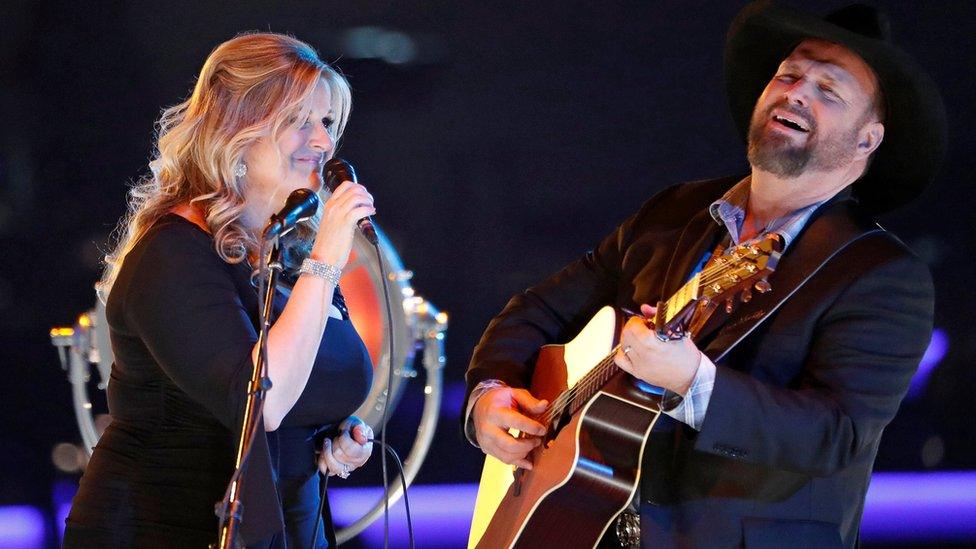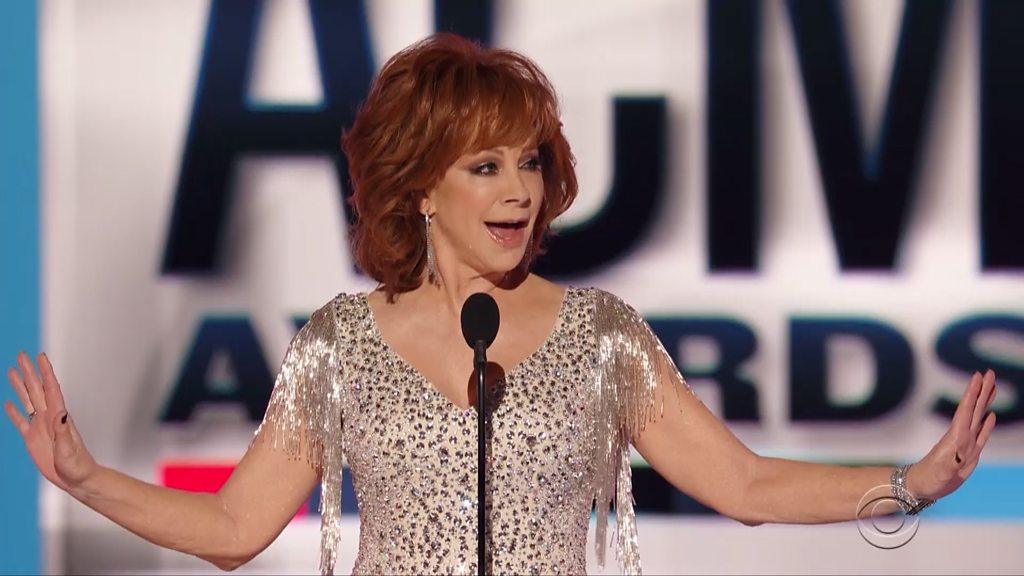Garth Brooks on country's gender bias: 'We don't have enough female voices'
- Published
Garth Brooks on country music's women problem
Country singer Garth Brooks has called for more gender diversity in the genre, telling the BBC: "We do not have the female voice in it enough."
He said his wife, country singer Trisha Yearwood, "works a thousand times harder than me to get a tenth as much as I do out of this business.
"She doesn't complain. She just rolls up her sleeves and goes to work."
Female country singers have seen a decline in airplay over the past two decades, studies show.
The genre's most popular male artist, Kenny Chesney, was played on radio more than 6 million times between 2000 and 2018, according to data published last month, external by musicologist Jada Watson at the University of Ottawa.
The top female, Carrie Underwood, was played only half as much. Taylor Swift, who abandoned country music in 2013, came third in the study, with 1.8 million plays.

Garth Brooks and Trisha Yearwood are amongst country music's most popular stars
"The fact that somebody who hasn't released a country single since 2013 is still number three, is a sign of what has happened in the last five years," said Ms Watson.
A further study by the Annenberg Inclusion Initiative, external, part of University of Southern California, looked at the number of female artists and songwriters on the country music charts. They found only one-fifth of the top 500 country songs from 2014-2018 were by female artists.
In the most recent top 50 country music chart compiled by Billboard, only eight female artists currently appear.
Country singer Kacey Musgraves, whose latest album Golden Hour, has been named record of the year at the Grammys, ACM and CMA awards, has only received limited airplay on country radio stations.
"It seems a group of 10 guys who all sound the same have no issue getting on the radio," she told HuffPost last year, external, "but women who vary vastly from each other have a very hard time breaking through even in the smallest way on the country radio chart".
Allow YouTube content?
This article contains content provided by Google YouTube. We ask for your permission before anything is loaded, as they may be using cookies and other technologies. You may want to read Google’s cookie policy, external and privacy policy, external before accepting. To view this content choose ‘accept and continue’.
The decline in female representation can be at least partly blamed on record labels ignoring emerging talent, argued musicologist Ms Watson.
"Labels need to sign and promote women with the same intensity as they do for male artists," she said.
"Marketers and promoters need to have the same campaigns behind their female artists as they do for men. Tours and festivals need to be thinking about inclusion and diversity."
More women in country music would provide more variety and fresh perspectives, says Garth Brooks.
"We need that because guys... we open doors with our heads. We're not the smartest things on the planet. Females bring a whole different approach to how we see things.
"A good marriage between the male voice and the female voice, and country music, would be a true representation of what the people who listen to country music really are."

Follow us on Facebook, external, on Twitter @BBCNewsEnts, external, or on Instagram at bbcnewsents, external. If you have a story suggestion email entertainment.news@bbc.co.uk, external.
- Published22 December 2018

- Published8 April 2019
